On January 1, 2020, I launched www.GreatOpeningLines.com, history’s first website devoted exclusively to the celebration of great opening lines in world literature. After a modest beginning, it is now the world’s largest online database of literary openers, with more than 1,800 entries. If you’re a writer or aspiring writer, an avid reader, or simply a First Words junkie, consider it your “Go-To” site on the subject.
When the site was launched, I commemorated the event by doing a Smerconish.com post on “Twenty of the Best Opening Lines of 2020”. A year later, I followed up with a similar list for 2021. This marks my third compilation of the best opening lines of the year, and I’m hoping to make this an annual tradition. Let’s jump right in.
In a 2013 interview with Joe Fassler of The Atlantic magazine, Stephen King said:
An opening line should invite the reader to begin the story.
It should say: Listen. Come in here. You want to know more about this
How can a writer extend an appealing invitation—
one that’s difficult, even, to refuse?”
Appealing invitations can take many different forms, as you will shortly see. I found all of this year’s selections—and many more that didn’t make the final list—not merely difficult to refuse, but almost impossible. Perhaps they’ll have that same effect on you.
_____________________________________________________________________________________________________________
(1) BONO
I have very few memories of my mother, Iris. Neither does my older brother, Norman. The simple explanation is that, in our house, after she died she was never spoken of again.
“From Boy to Bono,” in The New Yorker (Sep. 19, 2022)
These are among the saddest words I’ve ever read, and among the most powerful I’ve ever seen at the beginning of an autobiographical article. As difficult as it is to imagine something like this happening in a family, Bono went on to reveal an even more disturbing detail as he continued:
“I fear it was worse than that. That we rarely thought of her again. We were three Irish men, and we avoided the pain that we knew would come from thinking and speaking about her.”
_____________________________________________________________________________________________________________
(2) IAN BREMMER
Away from the cameras and warmed by the fire, Ronald Reagan opened his first private conversation with Mikhail Gorbachev with a startling question: “What would you do if the United States were suddenly attacked by someone from outer space? Would you help us?”
The Power of Crisis (2022)
Opening a non-fiction book with a memorable anecdote is always a good idea, and this one is particularly impressive because it occurred at the very first summit conference of the two world leaders. In the book, Bremmer continued:
“Gorbachev didn’t hesitate. ‘No doubt about it,’ he replied. ‘We would too,’ Reagan assured him. That moment took place in a cabin in Geneva on November 19, 1985, but it wasn’t publicly known until Gorbachev told the story in front of a live audience at the Rainbow Room in New York City in March 2009. Only Reagan, Gorbachev, and their interpreters were present when that first exchange took place.”
_____________________________________________________________________________________________________________
(3) CHRISTOPHER BUCKLEY
He shuffles to the bathroom scale and steps onto it with the enthusiasm of a man mounting the gallows.
Has Anyone See My Toes? (2022)
The first sentence of Buckley’s most recent novel—a hilarious and heavily autobiographical examination of an aging writer’s life during the COVID-19 pandemic—perfectly captures an almost universal experience (since reading it, I haven’t looked at my bathroom scale in the same way again). In the opening paragraph, the narrator continued:
“He imagines metallic groans, the sound of springs straining to their limit, the creak of timbers about to crack. But how can this be? It’s a high-tech scale, probably engineered by people whose native language is German and wear white laboratory gowns. It was a hint-hint present from his wife, Peaches. It tells you not only how much you weigh but also how much you weighed yesterday, and how many calories you can consume today in order to weigh less tomorrow. But all this is academic, for he cannot see the numbers, owing to the protuberance of his belly.”
_____________________________________________________________________________________________________________
(4) RUPERT CHRISTIANSEN
This book has been written by someone in the grip of an addiction.
Diaghilev’s Empire: How the Ballet Russes Enthralled the World (2022)
It’s rare for a book on a relatively esoteric topic to be celebrated for its opening line, but the author of this one—an internationally-celebrated dance and opera critic—is also a very talented writer. In the book, Christiansen continued:
“I confess to being an incurable balletomane—a morbid affliction of which the chief symptom is the daily expense of an unconscionable amount of time watching, thinking or dreaming about classical dance and dancers. I don’t merely like, appreciate or enjoy ballet; I deeply and secretly need it….”
_____________________________________________________________________________________________________________
(5) NINA DE GRAMONT
A long time ago in another country, I nearly killed a man.
The Christie Affair (2022)
In a Wall Street Journal review, Tom Nolan wrote that the novel “Sizzles from the first sentence.” In 1926, Agatha Christie was one of the world’s most popular writers when she famously disappeared for eleven days. While Christie never talked about what happened, the story has been explored in a number of books and films—but never more ingeniously than in de Gramont’s novel, which told the story from the perspective of Nan O’Dea, the mistress of Agatha Christie’s husband. In the novel, O’Dea continued with a dark but powerful observation:
“It’s a particular feeling, the urge to murder. First comes rage, larger than any you’ve ever imagined. It takes over your body so completely it’s like a divine force, grabbing hold of your will, your limbs, your psyche. It conveys a strength you never knew you possessed. Your hands, harmless until now, rise up to squeeze another person’s life away. There’s a joy to it. In retrospect it’s frightening, but I daresay in the moment it feels sweet, the way justice feels sweet.”
_____________________________________________________________________________________________________________
(6) NELSON DEMILLE
You can’t drink all day unless you start in the morning.
The Maze (2022)
Some opening lines are like a warm handshake accompanied by a big grin—sending the message, “C’mon in. Even though we’re about to embark on some serious business, there’s nothing wrong with having a little fun along the way.” The opening line comes from former NYPD homicide detective, John Corey, who goes on to explain that he’s been enjoying a beer-drinking, crossword puzzle-playing vacation at his uncle Harry’s large Victorian house overlooking Long Island’s Great Peconic Bay. In the novel’s second paragraph, Corey goes on to make yet another clever observation:
“I’d been chilling here for about three weeks, and as I’d said the last time I was borrowing Harry’s summer house, the problem with doing nothing is not knowing when you’re finished.”
_____________________________________________________________________________________________________________
(7) MAUREEN DOWD
The fate of a sycophant is never a happy one.
“Hence, Mike Pence,” in The New York Times (June 18, 2022)
In the world of journalism, a first sentence is commonly called a lede, and this is one of Dowd’s best, perfectly capturing why Mike Pence will likely never achieve his lifelong goal of becoming President of the United States. Dowd’s opening line was followed by three brief paragraphs that matched it in quality:
“At first, you think that fawning over the boss is a good way to move forward. But when you are dealing with a narcissist—and narcissists are the ones who like to be surrounded by sycophants—you can never be unctuous enough.”
“Narcissists are Grand Canyons of need. The more they are flattered, the more their appetite for flattery grows.”
“That is the hard, almost fatal, lesson Pence learned on Jan. 6, when he finally stood up to Donald Trump after Trump asked for one teensy favor: Help destroy American democracy and all we stand for.”
_____________________________________________________________________________________________________________
(8) BOB DYLAN
A-Wop-Bop-A-Loo-Bop-a-Wop-Bam-Boom. Little Richard was speaking in tongues across the airwaves long before anybody knew what was happening.
“Tutt Frutti. Little Richard,” in The Philosophy of Modern Song (2022)
These are the opening words of one of the sixty-plus essays in a book described by The New Yorker’s David Remnick as “Dylan wandering through the enormous record bin of his mind.” Based in part on Dylan’s popular “Theme Time Radio Hour” on XM Satellite Radio, the book is a collection of intellectually and emotionally penetrating essays on the modern era’s most popular songs and the artists who performed them. In his tribute to Little Richard, Dylan continued:
“He took speaking in tongues right out of the sweaty canvas tent and put it on the mainstream radio, even screamed like a holy preacher—which is what he was.”
_____________________________________________________________________________________________________________
(9) ISAAC FITZGERALD
My parents were married when they had me, just to different people.
Dirtbag, Massachusetts: A Confessional (2022)
This is the terrific opening line of one of the year’s most widely praised memoirs. In a BookPage review, Alice Cary wrote: “Isaac Fitzgerald grabs readers’ attention with the title of his memoir…and never lets go. He’s a mesmerizing storyteller who deploys unexpected delights from his very first line.” In his book, Fitzgerald continued:
“That’s the way I open every story when I’m asked about my childhood. I was a child of passion! A happy little accident. Or, put another way, I was born of sin: a mistake in human form, a bomb aimed perfectly to blow up both my parents’ lives.”
_____________________________________________________________________________________________________________
(10) JONATHAN FREEDLAND
7 April 1944
After days of delay, weeks of obsessive preparation, months of watching the failed attempts of others and two years of seeing the depth to which human beings could sink, the moment had finally come. It was time to escape.
The Escape Artist: The Man Who Broke Out of Auschwitz to Warn the World (2022)
The opening paragraph reads like the first words of a suspense thriller, but they are, in fact, based on the true story of Rudolf Vrba, the first Jew to successfully escape from Auschwitz (one of only four in history). In the book’s second paragraph, Freedland continued:
“The two other prisoners were already there, at the designated spot. Wordlessly, they gave the nod: do it now. Walter and Fred did not hesitate. They climbed on top of the timbers, found the opening and, one after the other, they dropped inside. A second later, their comrades moved the planks into place above their heads. One of them whispered, ‘Bon voyage.’ And then all was dark and silent.”
_____________________________________________________________________________________________________________
(11) TOM FRIEDMAN
I got a little emotional voting this year.
“The Big Liar and His Losing Little Liars,” in The New York Times (Nov. 15, 2022)
Friedman’s simple-but-powerful lede about the 2022 mid-term elections perfectly summed up my own feelings about voting this year—and probably yours as well.
_____________________________________________________________________________________________________________
(12) EMILY GIFFIN
I don’t remember my father. At least that’s what I tell people when they ask if I do. I was barely three years old when he died.
Meant to Be (2022)
This soft-but-evocative opening takes on special meaning when we realize it comes from a fictionalized version of John. F. Kennedy, Jr. In the opening paragraph, Joseph Kingsley III, a handsome young man from a famous American family, continued:
“I once read that it’s impossible to have memories much before the age language fully develops. Apparently, we need words to translate our experiences, and if memories aren’t encoded linguistically, they become irretrievable. Lost in our minds. So I’ve accepted that my vague recollections of the day he was put to rest at Arlington National Cemetery are fabricated—an amalgam of photographs, news footage, and accounts from my mother that were somehow planted in my brain.”
Giffin’s reimagining of the courtship and marriage of JFK, Jr. and Carolyn Bessette was so beautifully told that Vanity Fair reviewer Keziah Weir hailed her as a “modern-day Jane Austen.”
_____________________________________________________________________________________________________________
(13) JENNIFER HILLIER
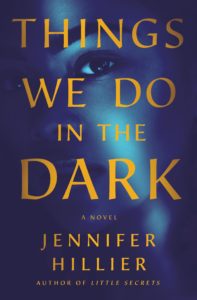
There’s a time and place for erect nipples, but the back of a Seattle police car definitely isn’t it.
Things We Do in the Dark (2022)
In a New York Times review, Sarah Weinman found this hook especially appealing and surmised that Hillier must have had great fun writing it. In the novel’s second paragraph, the narrator continued:
“Paris Peralta didn’t think to grab a sweater before they arrested her, so she’s only wearing a bloodstained tank top. It is July, after all. But the air-conditioning is on high, and she feels cold and exposed. With her wrists cuffed, all she can do is clasp her hands together and hold her forearms up to cover her breasts. It looks like she’s praying.”
_____________________________________________________________________________________________________________
(14) CORMAC MCCARTHY
It had snowed lightly in the night and her frozen hair was gold and crystalline and her eyes were frozen cold and hard as stones.
The Passenger (2022)
It’s a grisly opening scene, but one with a stunning juxtaposition of antithetical elements—and, after one sentence, we’re already along for the ride. The novel’s first sentence is also proof positive that, at age eighty-nine, McCarthy is still at the top of his game. The legendary American author has written many great opening lines in his career, and this may be his best. In the opening paragraph, the narrator continued:
“One of her yellow boots had fallen off and stood in the snow beneath her. The shape of her coat lay dusted in the snow where she’d dropped it and she wore only a white dress and she hung among the bare gray poles of the winter trees with her head bowed and her hands turned slightly outward like those certain ecumenical statues whose attitude asks that their history be considered.”
_____________________________________________________________________________________________________________
(15) MEGHAN O’ROURKE
The stories we tell about illness usually have startling beginnings—the fall at the supermarket, the lump discovered in the abdomen during a routine exam, the doctor’s call. Not mine. I got sick the way Hemingway says you go broke: “gradually and then suddenly.”
The Invisible Kingdom: Reimagining Chronic Illness (2022)
A time-honored way to open a book is to invoke the famous words of a famous author, and in this case the quoted saying applies as well to the new topic under discussion as it did to the original one. A finalist for the National Book Award for Nonfiction, the book was described by Esquire magazine as “At once a rigorous work of scholarship and a radical act of empathy.”
Later in the book, O’Rourke—a poet, writer, and creative writing teacher—cleverly tweaked one of history’s most famous opening lines, writing:
“And so it is a truth universally acknowledged among the chronically ill that a young woman in possession of vague symptoms like fatigue and pain will be in search of a doctor who believes she is actually sick.”
_____________________________________________________________________________________________________________
(16) NILAY PATEL
You fucked up real good, kiddo.
“Welcome to Hell, Elon: You Break It, You Buy It,” in The Verge (Oct. 28, 2022)
In crafting this opener, Patel, a prominent technology journalist and founder of The Verge, offered the single best thing said about Elon Musk’s head-scratching purchase of Twitter. In the article’s second paragraph, Patel continued:
“Twitter is a disaster clown car company that is successful despite itself, and there is no possible way to grow users and revenue without making a series of enormous compromises that will ultimately destroy your reputation and possibly cause grievous damage to your other companies.”
I also enjoyed the closing line of Patel’s article: “Anyhow, welcome to hell. This was your idea.”
_____________________________________________________________________________________________________________
(17) MATTHEW PERRY
Hi, my name is Matthew, although you may know me by another name. My friends call me Matty.
And I should be dead.
Friends, Lovers, and the Big Terrible Thing: A Memoir (2022)
These are the stark opening words of the Prologue to Perry’s much-anticipated memoir, a candid and often harrowing story about his lifelong struggles with alcoholism and drug addiction (he ultimately went through detox an incredible sixty-five times). The book was widely praised for its unflinching honesty, but a review in People magazine may have said it best: “A heartbreakingly beautiful memoir.”
_____________________________________________________________________________________________________________
(18) DOLEN PERKINS-VALDEZ
Memphis
2016
A year never passes without me thinking of them. India. Erica. Their names are stitched inside every white coat I have ever worn.
Take My Hand (2022)
After these few, brief words, we’ve already grasped the essence of the story to come and find ourselves in full agreement with the Bookpage reviewer who wrote: “There’s nothing better than settling down to read a novel and immediately sensing that you’re in the hands of a gifted storyteller.” As the opening paragraph continues, we don’t yet know if the narrator is a doctor or a nurse, but the words are haunting:
“I tell this story to stitch their names inside your clothes, too. A reminder to never forget. Medicine has taught me, really taught me, to accept the things I cannot change. A difficult-to-swallow serenity prayer. I’m not trying to change the past. I’m telling it in order to lay those ghosts to rest.”
_____________________________________________________________________________________________________________
(19) NITA PROSE
I am your maid. I’m the one who cleans your hotel room, who enters like a phantom when you’re out gallivanting for the day, no care at all about what you’ve left behind, the mess, or what I might see when you’re gone.
The Maid (2022)
In a 2022 Amazon Book Review post, Seira Wilson included these perception-altering first words in an article on “Books with Unputdownable First Lines.” About the protagonist, Wilson wrote: “Molly is a maid at a nice New York hotel who finds the body of a murder victim who is a very wealthy and frequent guest. Unfortunately, Molly’s quirky mannerisms and affect make her a prime suspect.”
Prose is a longtime book editor and publishing executive, and The Maid is her debut novel. The book quickly became an international bestseller, and nobody was surprised to learn that a film adaptation was already in the works, with the talented British actress Florence Pugh set to appear in the starring role.
_____________________________________________________________________________________________________________
(20) HEATHER RADKE
The first butt I remember isn’t my own. It’s my mother’s.
Butts: A Backstory (2022)
To be honest, I’m not sure which I liked best, the opening words, the book’s title, or the engaging cover. All three captivated me from the very beginning, and Butts went on to become my favorite non-fiction book of the year. In a Washington Post review, Karen Heller might have been speaking for me when she wrote: “What appears initially as a folly with a look-at-this cover and title becomes, thanks to Radke’s intelligence and curiosity, something much meatier, entertaining, and wise.”
I became immediately engaged after reading the whimsical opening words, thinking to myself: “Nobody remembers their own butt, because they can’t see it; you can only remember what you see.” Imagine my pleasant surprise, then, when Radke went on to write a bit later: “In some ways, the butt belongs to the viewer more than the viewed. It can be observed secretly, ogled in private, creepily scrutinized.”
_____________________________________________________________________________________________________________
(21) STACY SCHIFF
Samuel Adams delivered what may count as the most remarkable second act in American life. It was all the more confounding after the first: he was a perfect failure until middle age.
The Revolutionary: Samuel Adams (2022)
Schiff, a Pulitzer Prize-winning historian, begins her biography with a juicy little tidbit about one of the Revolutionary era’s most influential—and fascinating—figures. She continued in her opening paragraph:
“He found his footing at age forty-one, when, over a dozen years, he proceeded to answer to Thomas Jefferson’s description of him as ‘truly the man of the Revolution.’ With singular lucidity Adams plucked ideas from the air and pinned them to the page, layering in the moral dimensions, whipping up emotions, seizing and shaping the popular imagination.”
In “How Samuel Adams Helped Ferment a Revolution,” an October 2022 New Yorker article that relied heavily on Schiff’s research, Adam Gopnik helped clarify why her opening words were so effective: “All writers must woo and win readers, and readers are wooed and won, today as yesterday, by stories of flawed, sympathetic people who do big and significant things despite many obstacles put in their way. The bigger the obstacles and the more grooved-in the personal flaws, the better the story.”
_____________________________________________________________________________________________________________
(22) MARIANNE WIGGINS
You can’t save what you don’t love.
Properties of Thirst (2022)
Beginning a book with a popular modern proverb can be a questionable choice, but it works surprisingly well in this case. In a Los Angeles Times review, writer Lorraine Berry wrote: “‘You can’t save what you don’t love,’ reads the declarative sentence that opens the novel. It becomes the theme that ties together the disparate characters as they attempt to save the water, save the land, save their families, and ultimately save themselves. And it describes the novel that mother and daughter have saved together.”
In 2016, at age 68, Wiggins had completed ninety percent of the book when she suffered a massive stroke that erased all of her memories of the previous eight years—including her writing of the novel. Unable to continue living independently, she moved in with daughter Lara Porzak, a well-known photographer, who became her full-time caregiver. After falling in love with the manuscript, Porzak reintroduced it to her mother by gently reading and re-reading it to her. As Wiggins gradually improved, the mother-daughter team worked assiduously every day for the next three years to find the right words to complete it. It’s a touching real-life story that reads like a novel, and much of it is detailed in “Marianne,” a new documentary film Porzak made with filmmaker Rebecca Ressler.
_____________________________________________________________________________________________________________
I don’t regard these as the twenty-two best opening lines of 2022, but as twenty-two of the best. They reflect my tastes and preferences, and a similar list created by you might be considerably different.
If you failed to find your favorite opening lines from 2022 in this post, you might find them on my website: www.GreatOpeningLines.com. And if you cannot find them there, please e-mail them to me at [email protected]. I’ll make sure they get posted on the site.
See you next year.
_____________________________________________________________________________________________________________
 Dr. Mardy Grothe
Dr. Mardy Grothe
Dr. Mardy Grothe is a retired psychologist and author of eight quotation anthologies, including Oxymoronica and I Never Metaphor I Didn’t Like (for more, go to: www.drmardy.com). He is also the compiler of “Dr. Mardy’s Dictionary of Metaphorical Quotations” (DMDMQ), history’s largest online database of metaphorical quotations. About him, Fred Shapiro, editor of The New Yale Book of Quotations wrote: “Mardy Grothe’s books and websites are the wonders of the quotation world. Time and time again he has produced resources that are both addictively fascinating and highly educational.”



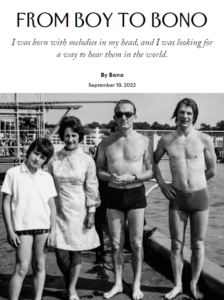
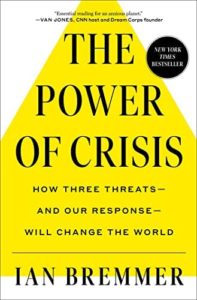
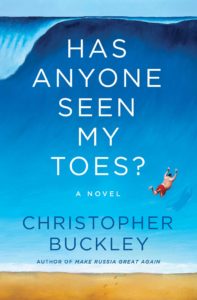
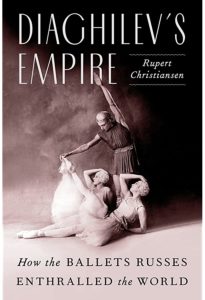
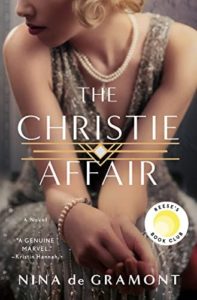
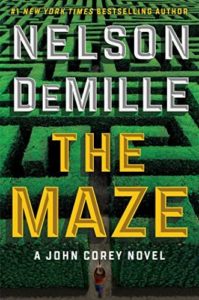
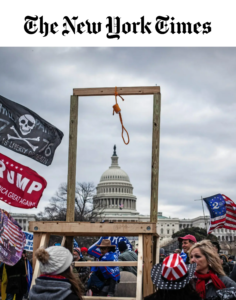
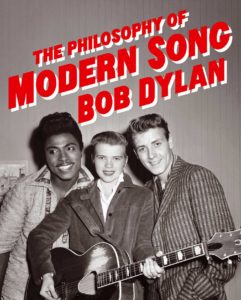
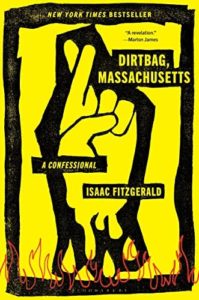
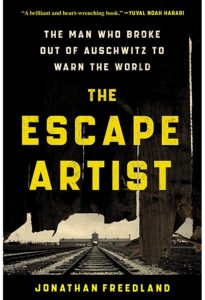

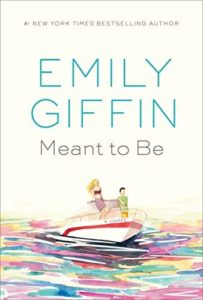
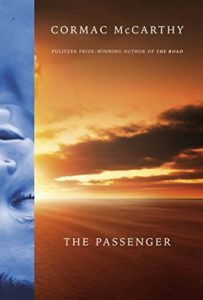
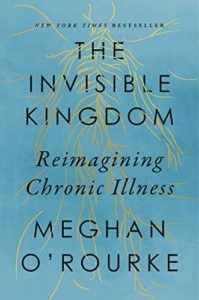

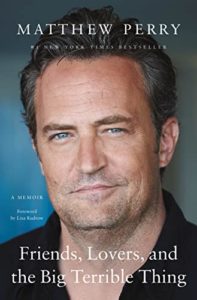
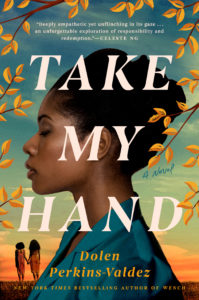
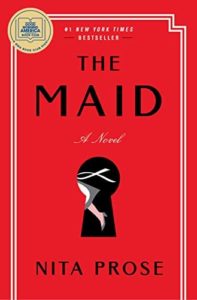
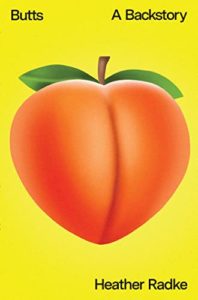
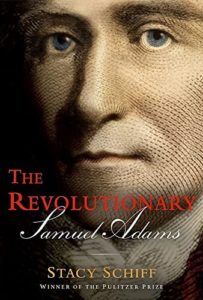
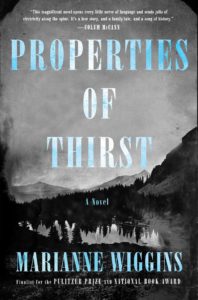
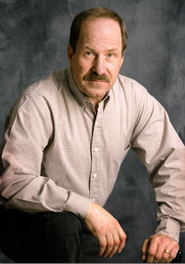 Dr. Mardy Grothe
Dr. Mardy Grothe


